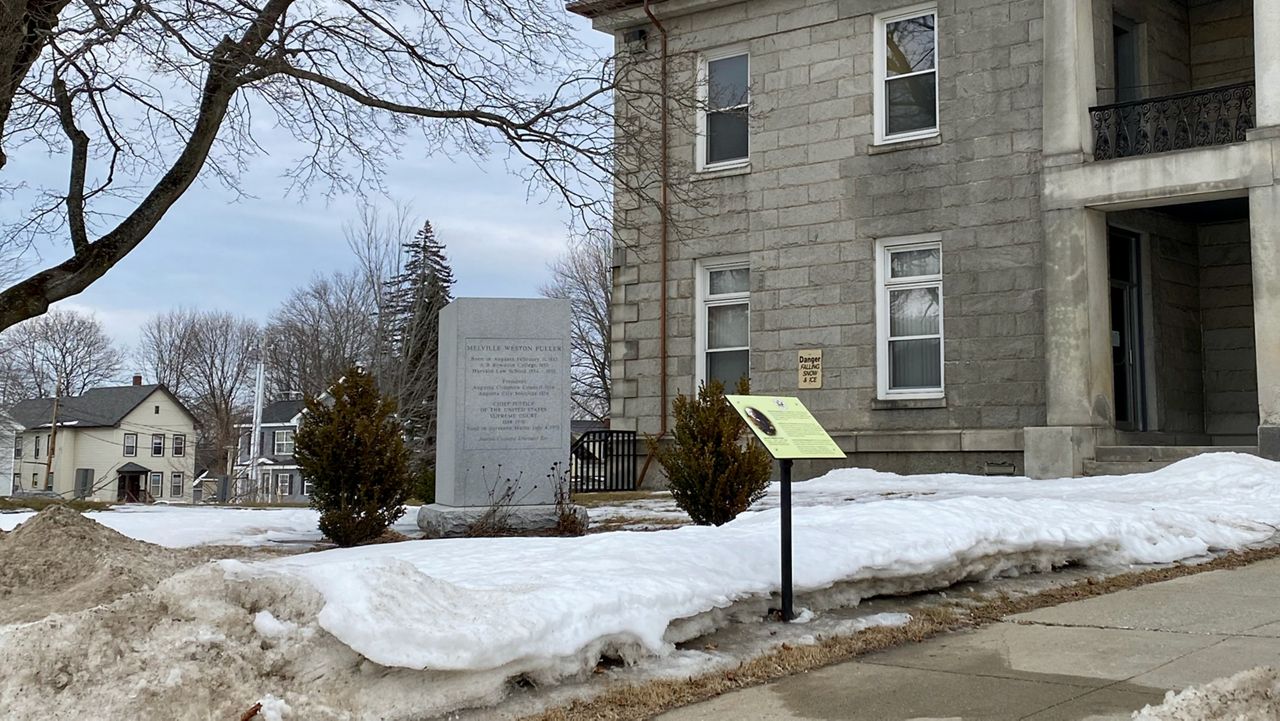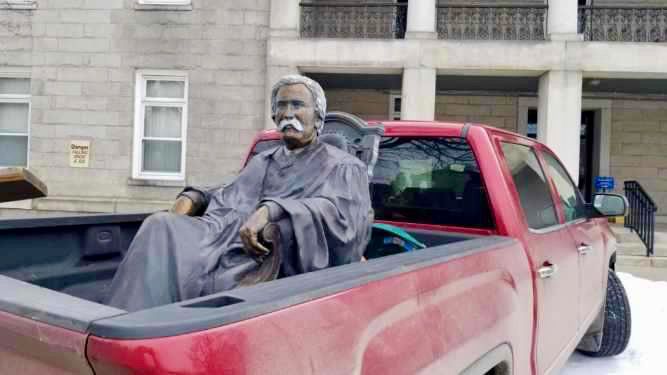A controversial statue of Maine’s only former U.S. Supreme Court chief justice was removed from the Kennebec County Courthouse grounds Sunday.
Robert Fuller, who donated it to the county in 2013, emailed Spectrum News Maine on Sunday with a photo of the statue of former Chief Justice Melville Weston Fuller in the bed of a pick-up truck. Spectrum News confirmed later that day that the statue had been removed from its granite base.
“Maybe the chief justice has gone South for the winter!” Fuller said via email.

The statue has been controversial for nearly two years because Melville Fuller signed on to the Plessy v. Ferguson decision in 1896, which enshrined the “separate but equal” doctrine into law for decades. That decision, described by the NAACP as “one of the most horrendous court decisions in American history,” meant that Blacks could legally be treated as second class citizens until it was overturned in 1954 by Brown v. Board of Education.
Last week, the Augusta Planning Board considered a proposal from Robert Fuller to move the statue across the street to a vacant lot that was the former home of the Kennebec Valley YMCA. But several people spoke against the proposal and the city received more than 30 letters in opposition, mostly from those who opposed the statute’s presence in the city because of its ties to the Plessey decision.
The board tabled a decision on the proposal after Fuller’s engineer asked that it be set aside given the public comments.
Prior to the meeting, Robert Fuller and others argued that his distant relative served 22 years as Supreme Court chief justice and that it is not fair to judge him for siding with the majority on one decision. Melville Fuller, who was born in Augusta, served as chief justice from 1888 to 1910 and presided over a court that issued 5,888 opinions. Melville Fuller wrote 840 of those.
When Robert Fuller donated the statue to the county in 2013, he said he informed them of Melville Fuller’s participation in the Plessey decision. Kennebec County accepted the statue anyway and it wasn’t until the racial justice protests across the country in 2020 that the county reconsidered whether a statue honoring Fuller should be on courthouse grounds.
At the time, acting Maine Supreme Judicial Court Chief Justice Andrew Mead said it’s important for public officials to periodically reevaluate their decisions.
“Given our commitment to racial justice, we should take every opportunity to examine and re-examine our positions, policies and practices,” Mead wrote.






